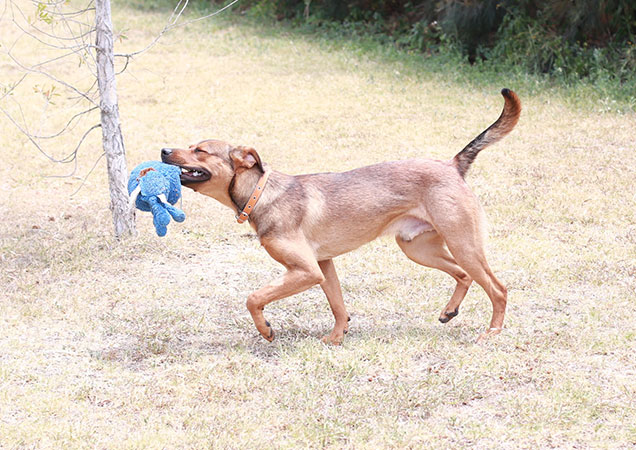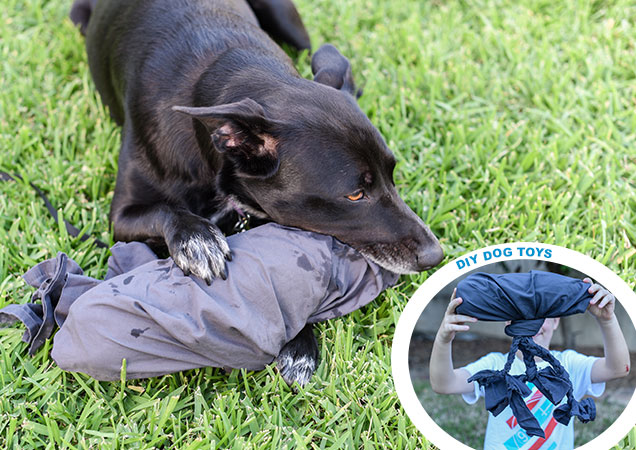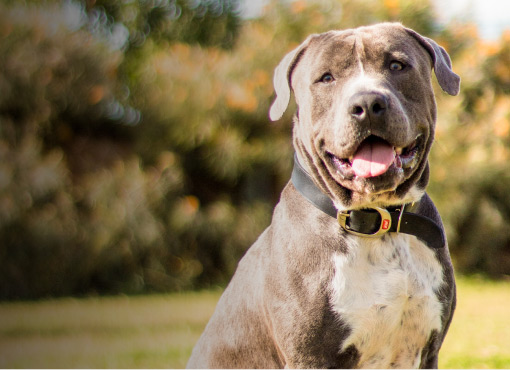If you’ve welcomed a puppy into your home and they’ve decided to chew anything they can get their paws on, or have an adult dog that likes to munch too, we have some handy pet care tips for you!
Why does my dog chew?
There are many reasons why your dog or puppy may chew. Let’s look at a few:
- Part of play and learning - While play with people and other dogs is an important part of socialisation and social development, exploration and object play are important ways for dogs to learn about their environment. They may do this by sniffing, tasting and chewing on objects in your home (yes, furniture, shoes and more).
- Your puppy may be teething - dogs 3 to 6 months of age can often chew on household objects.
- Your dog might just have a natural urge to chew – to keep teeth and gums healthy.
- Your dog may be a ‘bin chicken’ - Dogs that chew may also be scavenging for food.
- Self-soothing – your dog might be trying to relax by chewing. Chewing can be a self-soothing behaviour, releasing endorphins.
- Receiving attention – Some dogs may chew because they receive attention (even if it is negative) or treats from their owners each time they chew, you may be inadvertently rewarding their behaviour.
- Anxious pets - Chewing and destructive behaviours may also be a response to anxiety. Dogs that are confined in areas where they are insecure may dig and chew in an attempt to escape. Dogs that are in a state of conflict, arousal or anxiety, such as separation anxiety, may turn to chewing and other forms of destructiveness as an outlet.
Ways to help your dog’s chewing habits
- Find appropriate alternatives – provide your dog with sufficient play and exercise. You can also try long lasting treat toys. We’ve compiled the top ten long lasting dog chew treats for adult dogs you can try here. You can also make some great DIY toys for your pet to keep them entertained and interested in new things!
- Redirect your puppy’s mouthy or chewing behaviour onto appropriate items – like toys and treats instead of your arm and furniture. You can also give them time out from you. Dogs often become mouthy because they want to play and interact with us. We can simply turn around and walk to the nearest door, walk through the door and count to 30 seconds and return to the room, and repeat if your puppy’s mouthing continues. Eventually your puppy will learn that mouthing makes you go away, and that is not what they want.
- Bin diving dogs – supervise your dogs where possible so they can’t bin dive and make your bins tamper proof.
- Destructive chewing – these dogs need to learn to become comfortable and secure with their crate, yard or room where they are to be confined. Dogs that are destructive as an outlet for anxiety will need to have the cause of the anxiety diagnosed, and the problem appropriately treated.
For more tips, read our chewing fact sheet here!





